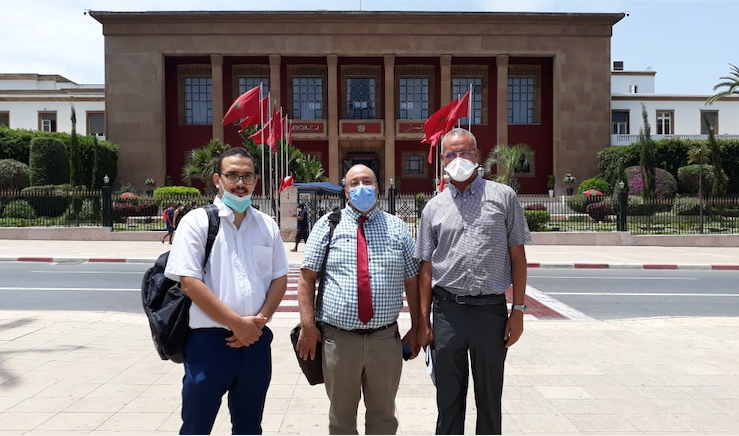- This week, civil society in Morocco has called for the urgent removal of unnecessary legal barriers, which are “tailor-made for profit-hungry multinationals” and hinder access to treatment.
- In a memorandum to parliament, 44 organizations call for relevant articles of the national law to be amended, which currently restrict rapid and affordable access to potential health products.
- Amending the law would ensure access to future products developed to treat and prevent COVID-19, as well access to all essential treatment more generally.
- The memorandum was sent to MPs, from both chambers of parliament, on 20 July 2020.
44 civil society organizations have signed a memorandum addressed to all Moroccan parliamentarians, urging for action to be taken quickly to amend laws that will prevent people in the country from accessing future COVID-19 vaccines and treatment.
Through this action, the signing organizations aim to ensure access to treatment, at an affordable price and in sufficient quantities.
“Restrictive and hostile law”
“Our request relates mainly to the modification of Law No. 23-13 amending and supplementing Law 17-97 on industrial property considered today by many experts as too restrictive and hostile to the national production of generic drugs,” said Othoman Mellouk, founding member of ITPC-MENA and Make Medicines Affordable campaign lead.
“Unfortunately, this law is tailor-made for profit-hungry multinationals and is very unfavorable to national production, [which is the only way] of guaranteeing our country self-sufficiency with regards to health products.”
The memorandum proposes action to legislators in three phases:
- Amend Articles of Law No. 23-13 amending and supplementing Law 17-97 on the granting and procedures of compulsory and office licenses;
- Set up a national multidisciplinary committee on the implementation of compulsory licenses and office licenses;
- Prepare for the long-term impact on the national health system by initiating a major review of laws governing intellectual property and the drug sector.

Civil society delivers a memorandum to all MPS urging them to ensure the right to health for people in Morocco.
A rise in ‘health nationalism’
By acting on the steps outlined in the memorandum, it could prevent a further, avoidable crisis resulting from the pandemic:
“Civil societies, global and Moroccan, are concerned about recent attempts by certain governments and players in the pharmaceutical industry to monopolize the availability of [COVID-19] products for their own nationalist agenda, or to maximize profits at the expense of a global health crisis,” said Prof. Mehdi Karkouri, president of the ALCS (anti-AIDS association).
As the pandemic has progressed there has been a rise in health nationalism with fierce competition between countries, and seizures of health products in transit.
The recent decision by the US government to purchase the entire global stockpile of remdesevir, a drug that is believed to help people with SARS-CoV-2 recover faster, is the death knell for what lies ahead if a treatment or vaccine proves to be effective in the future.
Powerful countries and complicit laboratories
Morocco and other middle-income countries will not be able to compete against powerful countries and complicit laboratories. The organizations signing the memorandum believe that only national production can guarantee self-sufficiency, but this production cannot take place without incorporating into national law all the flexibilities allowed by international agreements, which have been voluntarily omitted by the national legislation.
“Many parliaments around the world, including in the richest countries like Canada or the Netherlands, have made the necessary changes to their intellectual property laws and taken urgent measures to prepare a legal framework in favor of the use of more affordable generic versions of any drug or vaccine that would prove effective against COVID-19. We hope that our legislators will follow in the footsteps of their colleagues and adhere to our memorandum,” concludes Aziz Rhali, President of AMDH.
Media notes:
- This is a joint press release from ALCS (Moroccan anti-AIDS association), AMDH (Moroccan Human Rights Association), and ITPC-MENA (International Treatment Preparedness Coalition-MENA).
- Read the release in French.
- Access the memorandum in full (French).
For interviews, comment and more information, please contact:
Marwa El Harrar
ITPC-MENA, Advocacy Officer of the Association for Access to Treatment
[email protected]
Tel : +212 (0) 669 836 202
Moulay Ahmed DOURAIDI
ALCS, Advocacy and Human Rights Officer
[email protected]
Tel : +212 (0) 655 511 362
Aziz RHALI
AMDH, President of the Moroccan Association for Human Rights
[email protected]
Tel : +212 (0) 661 041 264




